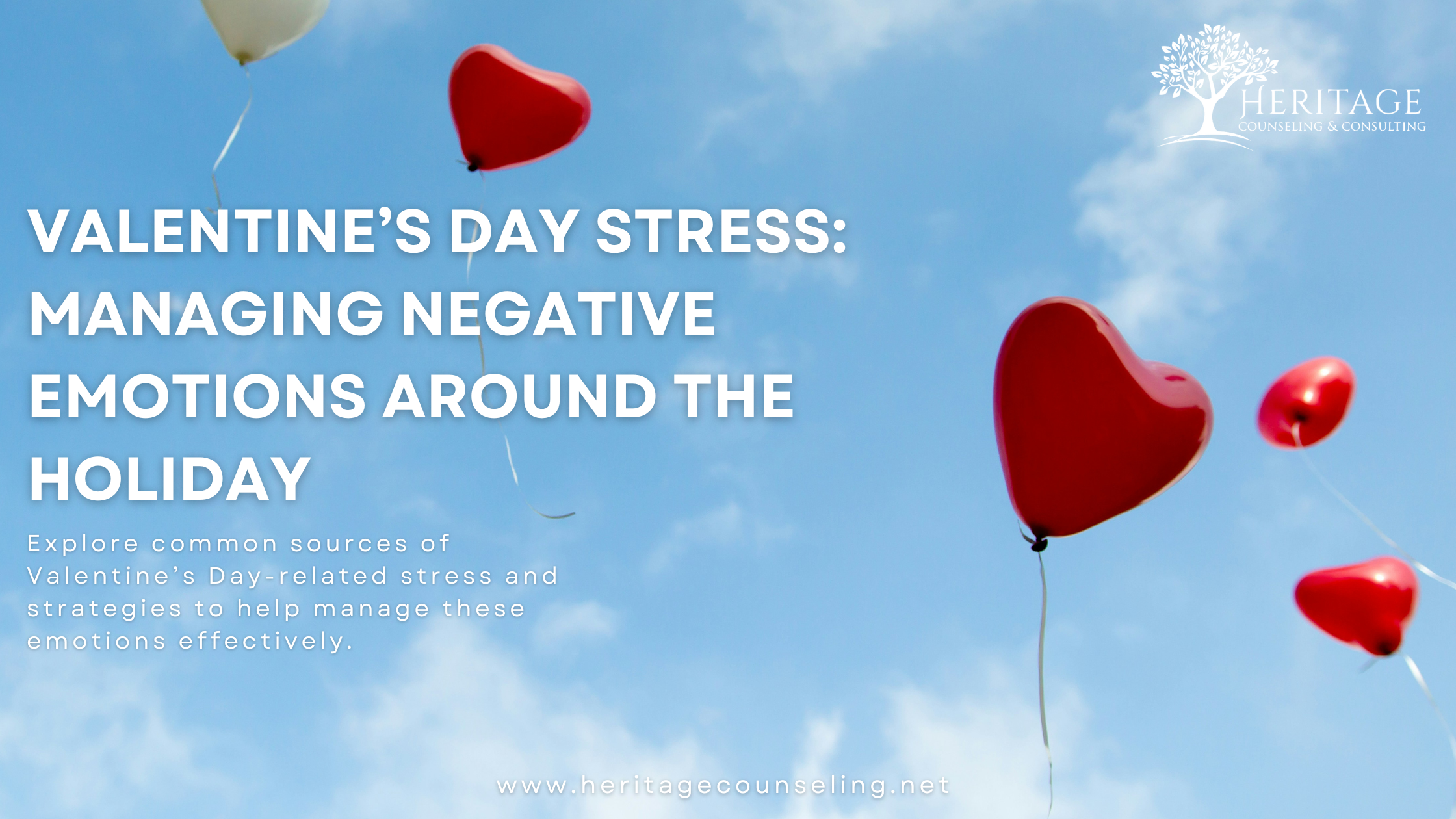Valentine's Day is often portrayed as a celebration of love and romance, yet for many individuals, it can be a source of stress, anxiety, and emotional distress. Whether you are in a relationship, single, working on yourself, or healing from past experiences, this holiday has the potential to trigger feelings of loneliness, pressure, and social comparison. If you find yourself struggling with difficult emotions as February 14th approaches, you are not alone. This article explores common sources of Valentine’s Day-related stress and offers strategies to help manage these emotions effectively.
Understanding Valentine’s Day-Related Stress
Several factors contribute to the stress surrounding Valentine’s Day:
1. Relationship Expectations
Individuals in relationships may feel immense pressure to create the "perfect" Valentine’s Day experience. Societal and personal expectations surrounding grand romantic gestures, expensive gifts, or elaborate plans can lead to anxiety or disappointment.
2. Social Comparison
Social media platforms are inundated with curated images of couples celebrating in seemingly perfect ways. This can contribute to feelings of inadequacy, fostering unrealistic comparisons that fail to account for the complexities of real relationships and aspects not shown online.
3. Loneliness and Isolation
For those who are single or experiencing a recent breakup, Valentine’s Day can serve as a painful reminder of perceived loneliness or unmet relationship desires, exacerbating feelings of sadness and social isolation.
4. Financial Stress
The commercialization of Valentine’s Day can place undue financial strain on individuals who feel obligated to spend money on gifts, dining, or trips, leading to increased anxiety and stress.
5. Past Relationship Trauma
For individuals with a history of relationship trauma, this holiday may resurface painful memories, triggering emotional distress and reinforcing negative self-perceptions regarding relationships.
Strategies for Managing Valentine’s Day Anxiety
1. Reframe the Meaning of Valentine’s Day
Valentine’s Day does not have to be solely about romantic love. Instead, it can serve as an opportunity to express gratitude and appreciation for friends, family, and oneself. Engaging in acts of kindness or fostering meaningful connections can help shift focus away from societal pressures.
2. Prioritize Self-Care
Engaging in self-care activities such as mindfulness, physical exercise, reading, or indulging in a favorite hobby can mitigate stress. Research supports the benefits of self-compassion in reducing stress and improving resilience by breaking negative thought patterns and promoting emotional stability.
3. Limit Social Media Exposure
Excessive exposure to social media posts can amplify negative thoughts, emotions, and social comparison. Setting boundaries around social media use during this time can help maintain a realistic perspective and protect mental well-being.
4. Create a Personalized Celebration
For couples, shifting the focus from material expectations to shared experiences can alleviate stress. Discussing expectations ahead of time and engaging in meaningful activities, such as writing heartfelt letters or preparing a home-cooked meal together, fosters emotional intimacy without unnecessary pressure.
5. Embrace and Celebrate Singlehood
Being single does not diminish the opportunity to have fun on Valentine’s Day. Practicing self-love, engaging in social activities with friends or loved ones, or taking oneself on a solo outing can transform Valentine’s Day into a positive and fulfilling experience.
6. Seek Support When Needed
If Valentine’s Day is particularly distressing, reaching out for support can be beneficial. Whether through conversations with trusted friends or seeking guidance from a therapist, verbalizing emotions can help process difficult feelings and promote emotional regulation.
When to Consider Professional Support
If stress, anxiety, or feelings of loneliness persist beyond Valentine’s Day and interfere with daily functioning, professional support may be beneficial. Therapy can provide valuable tools to navigate relationship concerns, build self-esteem, and develop effective coping strategies for emotional challenges.
At Heritage Counseling & Consulting, our team of experienced clinicians is dedicated to supporting individuals through all of life’s transitions, including the emotional complexities associated with relationships. If you are struggling with stress or anxiety, we encourage you to reach out for professional support.
Final Thoughts
Valentine’s Day should not be a source of distress or self-doubt. By reframing its significance, practicing self-care, and prioritizing authentic connections, you can cultivate an experience that aligns with your emotional well-being. Whether celebrating with a partner, cherishing friendships, or embracing self-love, remember that your worth is not defined by a single day or relationship status.
If you need additional support, Heritage Counseling is here to help. Contact us today at 214-363-2345 to learn more about our services and how we can support your mental health journey.

